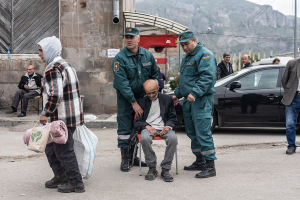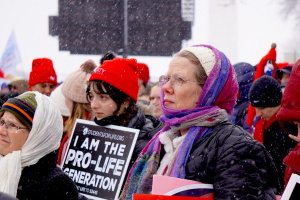Patterns of abuse — how to identify and avoid them

Yet another tragic story about ministerial abuses highlights a pattern of how abuse happens.
The International Churches of Christ children’s ministry, Kids Kingdom, faces allegations spanning almost 25 years (from 1987 to 2012), alleging that church authorities actively concealed abuses from Child Protective Services and Law Enforcement, allegedly maintaining that they “could not report these abuses because it would hurt (the) church.”
And earlier this year in the secular world, the La Vergne Police Department is plagued by the ongoing drama surrounding Maegan Hall, who was accused of participating in a “girls gone wild” approach to her work-life balance. While Maegan Hall admitted to dalliances with superior officers, she now alleges that she was subject to sexual grooming while at work.
Even supposedly safe spaces have faced allegations recently, with Loudon County Public Schools recklessly handling multiple sexual assault allegations. According to a special grand jury, the school district pursued its own interests or political agenda, instead of the well-being of students. Administrators initially transferred a known assailant to a different school — where the offenses were repeated — and subsequently failed to adequately inform school-board members of the assaults. According to a special grand jury, the school district bears the brunt of the blame, and failed at every juncture, taking no discernable action.
While the facts of these stories have not been established, we can derive and learn from three common denominators:
- The abuse happened at an organization meant to serve the vulnerable.
- The organizations had a higher vocation that could be placed at risk should the abuses become known.
- The abuse was either perpetrated by, or abetted by, persons in positions of power.
Ministries, police, and schools were established to “protect and serve” those who cannot protect themselves. Ministers, police, and educators by and large want to make the world around them a better, safer place. But not everyone drawn to service is doing so because they want to serve. Rather, power over and proximity to potential victims make these vocations attractive to abusers and predators.
Accusing a minister, a police officer or an educator of abusive (or even predatory or inappropriate) behavior is often met with cries of affront. Each of these vocations is a cornerstone of society. In their own ways, each of these men and women are heroes. Abuse accusations place their higher calling at risk, which in turn creates pressure to cover up or ignore the allegations, as has been alleged at Kids Kingdom and Loudon County Public Schools.
This pressure to ignore or cover up transgressions can be translated directly into aiding or abetting the abuse. At Kids Kingdom and La Vergne PD, leaders and superior officers respectively were alleged to have engaged in abuse. At Loudon, the district concealed information that could have prevented the ongoing sexual assault. When you bring power over vulnerable people together with a need to save face, it creates a dangerous cocktail where predators and abusers can not only thrive but can even rise to the highest echelons of power within the organization. It doesn’t need to be that way.
Three things must be present for abuse to occur:
- A potential victim.
- A would-be offender.
- The lack of a capable guardian.
In churches, police departments, and schools, “potential victims” are automatically present because they are the ones being served. In turn, access to potential victims will attract would-be offenders like flies to honey. And here is the dangerous part: unless you are a specialist, abusers are smarter than you. They’re smarter than me. While leadership and its employees have a precinct to run, children to educate, or ministries to lead, would-be offenders have nothing better to do than to circumnavigate the precautions and safety measures designed to keep people safe.
Therefore, a critical component of abuse prevention (including sexual harassment and child abuse) is to cultivate a work culture that reports early and often — and acts on those reports quickly. If organizations are serving the vulnerable, they simply cannot afford to risk boundary violations or borderline behaviors.
Even with aggressive reporting, would-be offenders seeking potential victims are inevitable. But simply the presence of would-be offenders and potential victims does not automatically add up to abuse, provided there is a capable guardian. While abusers are smarter than your average employee, they’re not smarter than an entire system of people committed to keeping them out.
This raises the question: how does one transform one’s organization from a “capable servant” into a “capable guardian”? For ministries at least, there are answers such as the accreditation program from The Evangelical Council for Abuse Prevention (ECAP). This process verifies whether a church or organization is compliant with the best practices defined in ECAPs child safety standards. And there are ministry child protection and workplace training programs like Telios Teaches. Unfortunately, nothing quite like ECAP’s standards and accreditation process exists for secular workplaces, though there is a vast array of prevention training. Most important, though, is a commitment to the process.
David Sidebotham is a founding member of Telios Teaches with over a decade of experience in curriculum management. He takes attorney generated curriculum and translates it into online courses that are accessible to all learners, while still remaining informative to learners who may be subject matter experts themselves. Telios Teaches includes both sexual harassment and child protection training.




























